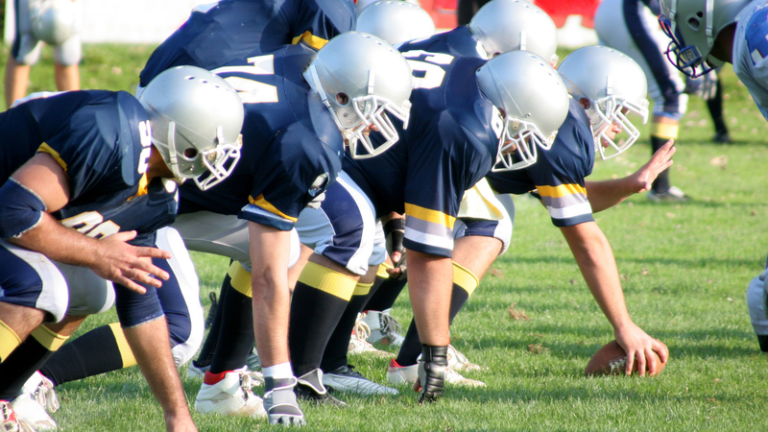There’s a lot of hype, misinformation, and unrealistic expectations when it comes to playing sports in college. I did my homework and found the top college recruiting myths that need to be busted. Parents and athletes, take note:
Myth #1: High school coaches will get you recruited. Your athlete is the only one responsible for his recruitment. Coaches can help, certainly, and provide guidance, but it is the athlete’s job to market him/herself.
Myth #2: Grades won’t matter if you are a really good athlete. Of course, top athletes will be pursued more vigorously, but most colleges want athletes who are also good students. Low grades can indeed keep you out of some schools. I’ve known many athletes who had to settle for junior colleges because of their grades.
Myth #3: Scholarships will find you. No matter how talented your child is, she must take a proactive approach. Don’t wait for colleges to call you because there are tons of athletes out there and coaches may not find you. Sending coaches emails, letters, and sharing stats and highlight videos is the best way to get your name out there to college coaches.
Myth #4: Your child will be “discovered” at showcases, camps, and clinics. Most of the time, college scouts attend showcases to see prospects they already know about, not to sniff out new ones. To make the most of these opportunities, be sure your child chooses showcases that their chosen schools will be attending, and let the coaches know that he/she is attending and would love to meet the coach in person.
Myth #5: Division 3 schools don’t offer scholarships. All three of my kids played Division 3 sports so I know for a fact that even though they don’t offer athletic scholarships, they still offer financial aid and academic scholarships.
Myth #6: Division 3 schools have weaker programs than D2 and D1 colleges. If you are only considering D1 schools just because they are D1, you are limiting your options. There are many top D2 or D3 teams that have the same caliber of athlete as a mid-tier D1 program. The main difference between divisions is focus on the sport and school and the amount of scholarships they have to offer.
Myth #7: Your child’s high school coach knows if your child can play in college. Some coaches are very knowledgeable about college recruiting; some are not. Many haven’t played the sport in college and only think D1 when it comes to recruiting. However, there are many factors that determine if an athlete plays in college, and your high school coach may not be fully aware of all the options.
Myth #8: If your child is not contacted by college coaches, he/she is not good enough to play in college. We once had a recruiting expert tell us that if our child really wanted to play in college and was willing to go anywhere, the chances are excellent that he/she could play. If your child is not being recruited, it may be just because coaches don’t know who your child is. The more your child puts himself/herself out there, the more opportunities she will have to find a school where he/she can play. It’s all a matter of finding the right fit.
Myth #9: If your child gets a letter from a coach, he/she is being recruited and will receive a scholarship. Coaches send out letters and emails to thousands of athletes in order to generate interest in their school. However, don’t overlook the opportunity this presents. It can be the start of a relationship with a coach. When your child starts receiving personalized emails, phone calls, and visits, he is being recruited!
Myth 10: The Full Ride. Just because your child gets a scholarship for one year doesn’t mean it automatically lasts for four years. I’ve known students who for one reason or another have lost their scholarships. By definition, a scholarship is a one-year renewable grant. Renewals are not automatic, and the college must notify the student in writing by July 1 of his scholarship status. Therefore, even the mythical “full ride” is only guaranteed for one year.
Myth #11: Your child will get a scholarship only if he/she is an elite player. Most scholarships that are given out are not full because partial scholarships allow schools to distribute scholarship money among many players and thus draw in more players. Academic scholarships are also an alternative to an athletic scholarship, which can be offered in full or in conjunction with an athletic scholarship.
Here’s the bottom line, parents: if your child wants to play in college after playing in high school and is willing to do the work looking for schools, marketing themselves, and will consider schools he never thought of, there’s a good chance he can play. It’s up to him to decide just how much he wants it.
Resources:
http://exactsports.com/blog/8-myths-of-college-recruiting/2013/07/23/
http://www.laxmagazine.com/sports/s-high/spec-rel/120208aac.html
http://studentathleteworld.com/recruiting-101/myths/
CoachUp is the safest and easiest way to find a coach for personalized training. With our 100% money-back guarantee and vetted coaches, anyone can achieve their full athletic potential. Find your perfect coach today and become the athlete you want to be!
How useful was this post?
Click on a star to rate it!
Average rating 0 / 5. Vote count: 0
No votes so far! Be the first to rate this post.



